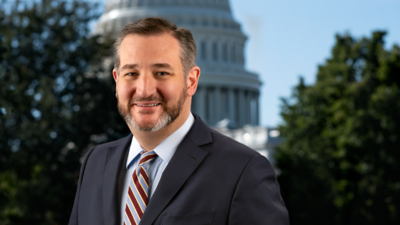Amy Korte | Executive Vice President | Illinois Policy Institute website
Amy Korte | Executive Vice President | Illinois Policy Institute website
CHICAGO (May 15, 2024) – One year into his tenure, Mayor Brandon Johnson's administration has been marked by controversy and unpopularity. According to new polling from the Illinois Policy Institute, Johnson holds a mere 27% favorability rating, making him the least popular incoming mayor in Chicago's history.
Despite this unpopularity, Johnson has remained steadfast in implementing his campaign promises on policies related to migrants, education, and business. He has also maintained a close relationship with the Chicago Teachers Union, his former employer.
Johnson's first year in office saw significant changes in crime management. The city experienced a reduction of 833 police positions, leaving it with 1,600 fewer officers than at the start of Mayor Lori Lightfoot’s administration. Despite pleas from school principals, Chicago Public Schools voted to remove police resource officers from all campuses under Johnson's watch. Furthermore, robbery and motor vehicle thefts hit decade highs last year while instances of assault and fatal and nonfatal shootings remained above pre-pandemic levels.
In terms of fiscal responsibility, Johnson allocated over $32 million in federal aid towards restarting a guaranteed income program that aids just 5,000 households. He also pledged $1.5 billion in tax dollars for a new stadium for the Chicago Bears despite campaign promises to the contrary.
On education matters, Johnson broke his promise for an elected school board. While campaigning alongside the CTU for a fully elected 20-member Chicago school board, he proposed and passed a plan for only ten elected seats once in office. Additionally, he implemented a new funding formula that allows near-empty schools to remain open and fully staffed without addressing dwindling enrollment.
The economic climate under Johnson saw the elimination of subminimum wage for tipped workers which is expected to disproportionately impact small family restaurants in the city. His administration also doubled family leave requirements without providing resources for small businesses to pay for it. Rather than attracting new businesses to fill record-high office vacancies, Johnson proposed a $150 million plan to convert office buildings in the Loop into just 319 “affordable” units costing $470,000 each. He also attempted to raise the real estate transfer tax through his $100 million “Bring Chicago Home” initiative, which was rejected by voters.
“Johnson’s unpopularity persists. In his short time as mayor, he’s moved to make Chicago more expensive and less safe for residents. When given the opportunity to reject his platform, they do. Without the control measures of the city council or the electorate, Johnson is able to enact his destructive policies. Johnson can do more damage in the upcoming CTU contract negotiations. The union is asking for billions in demands. As a former lobbyist, Johnson will be unable to remain impartial and should recuse himself from the negotiations,” said Bryce Hill, director of fiscal and economic research for the Illinois Policy Institute.
For more information about Johnson’s first year in office, visit illin.is/johnson1.





 Alerts Sign-up
Alerts Sign-up